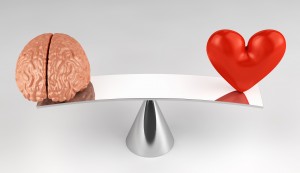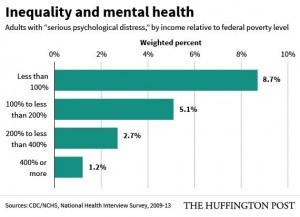Depression and heart attack go hand in hand.
When a person suffers a heart attack, depression and anxiety aren’t far behind. A heart attack is a major life stressor, affecting a person physically, mentally, and emotionally. It’s normal to feel anxious about your health afterwards. It’s also natural to be sad after a heart attack or stroke. Staying sad for too long isn’t natural nor is it healthy.
A study in Montreal, Canada found that heart patients who were depressed were 4 times likely to die in the next 6 months than those who weren’t depressed. Most heart patients with depression don’t get the correct treatment because doctors miss the depression or when depression is recognized, it’s not treated adequately. Why?
After a heart attack or stroke, mental health isn’t usually the first priority. Getting the body back to normal or near normal levels is the focus. Mental health often is ignored or glossed over. So it’s up to family and friends to notice changes in mood and attitude. While it’s normal to be sad after a traumatic experience, it’s not normal to stay sad for long period or be debilitated by the emotion. Ask yourself, does the person still enjoy the things that used to give pleasure? Has the person stopped seeing friends? What about sleep and eating patterns? If you said yes, then there’s a good chance the person is depressed.
Depression can mess up medication schedules and even convince a person not to take the medication. Depression can also make a person skip physical therapy or cut back on exercises. Depression also has high levels of the stress hormones cortisol and adrenaline. While the body is getting ready to ‘fight or flee’, important tissue repair to the heart is diverted or put on hold. This increases the heart’s work. Pumping blood faster causes high blood pressure and the two either separately or combined wreck havoc on the heart.
Most doctors don’t like prescribing anti-depressant medication after a heart attack. Anti-depressants are tough on the circulatory system and all come with some warning of complications which include stroke and heart attack. In fact, people taking anti-depressants are more likely to suffer a stroke or heart attack than people who don’t take any.
What can be done to safely deal with depression and heart attack? The best action is counselling or holistic medicines. Mindfulness therapy seems to be particularly effective as it’s cheap, easy to learn, and deals with bad thoughts being replaced by good ones. Stress relieving exercises also help. Essential oil therapy can help relieve the stress and anxiety heart patients experience.
The important thing to remember is that depression and heart attack go hand in hand. Mental health is as important as physical recovery. Watch for signs of depression and get help before the depression becomes severe.
* Click here to find out more about Terezia Farkas and her Depression help and click here to follow Terezia on Twitter.


